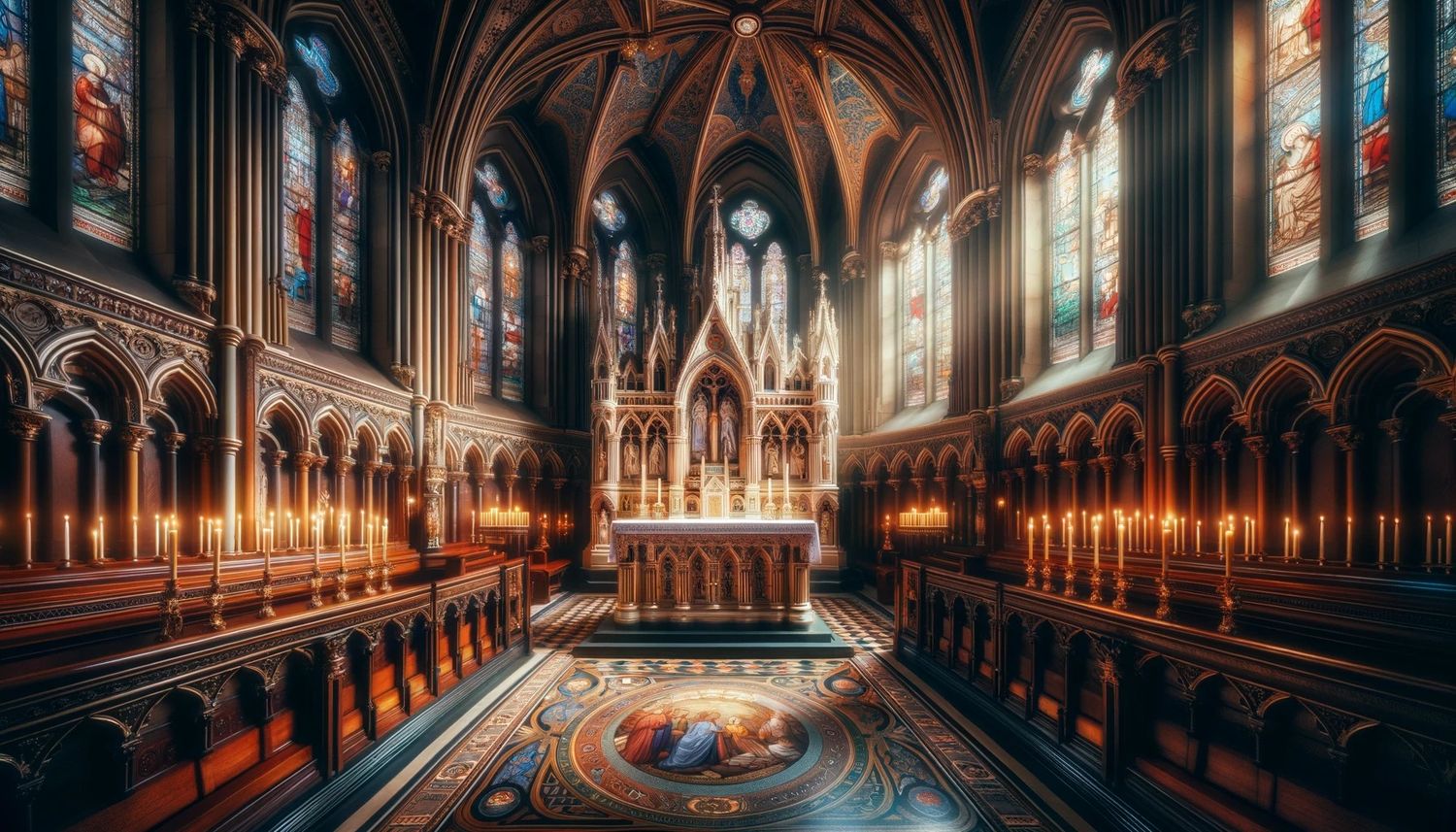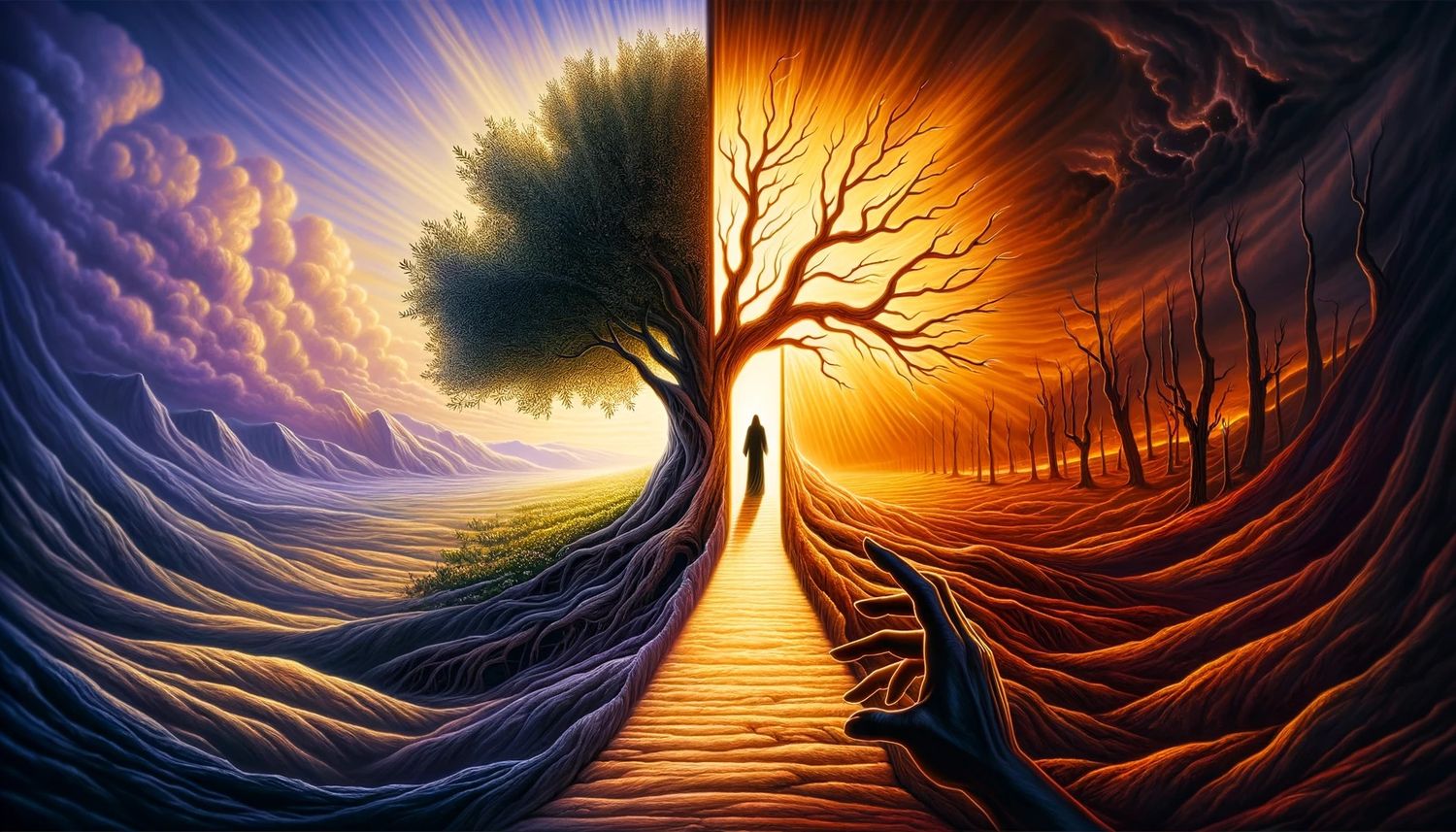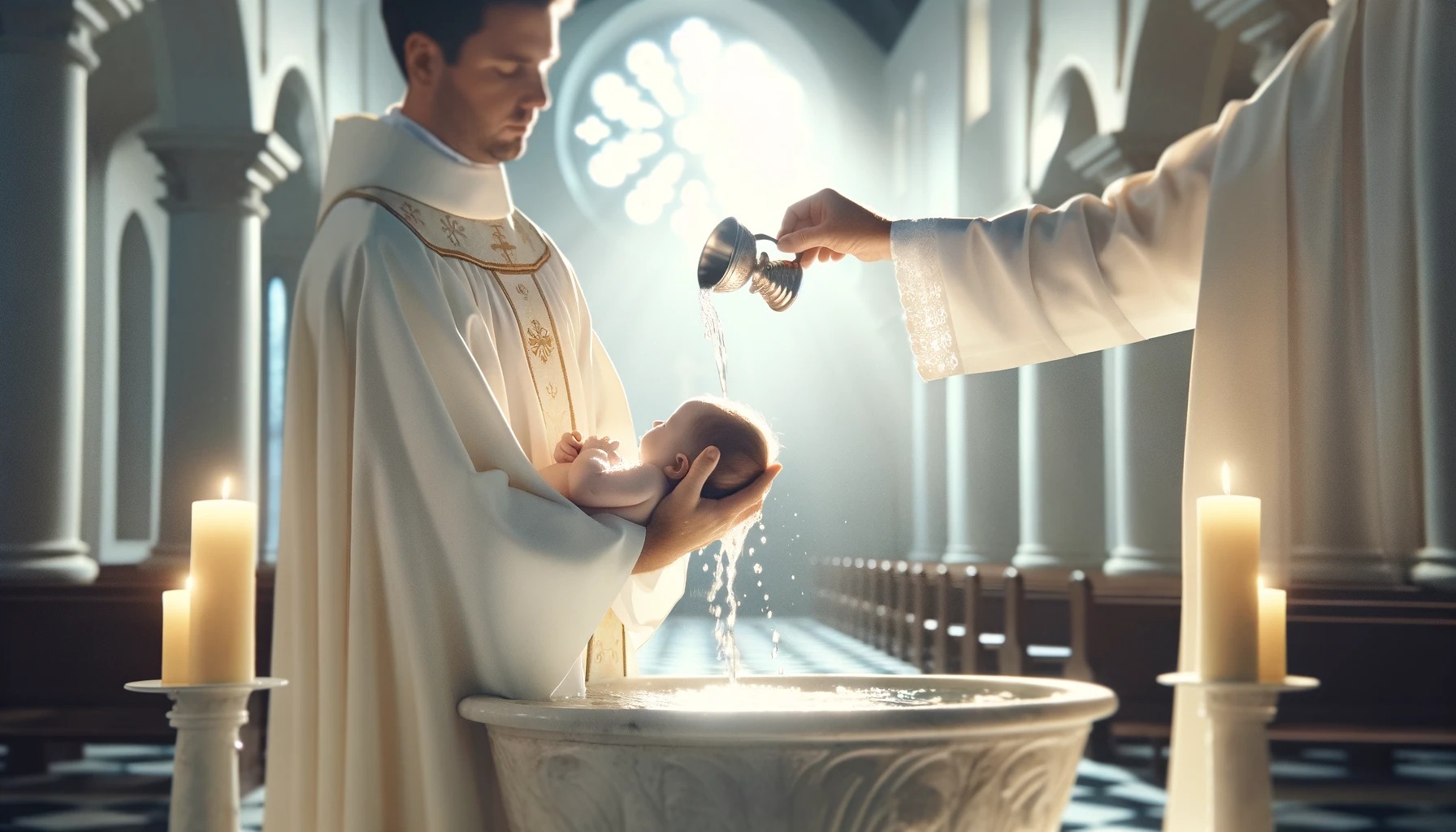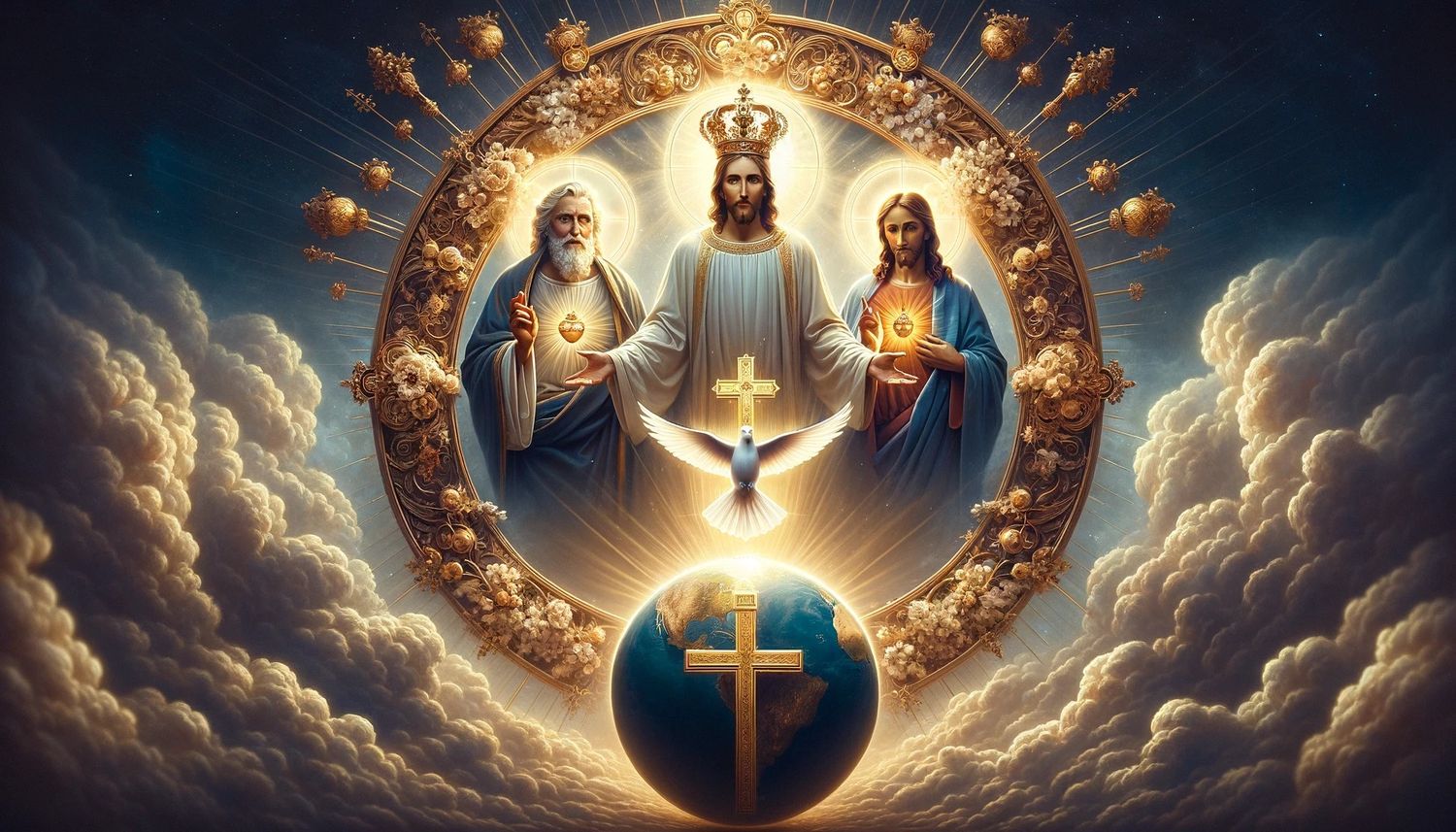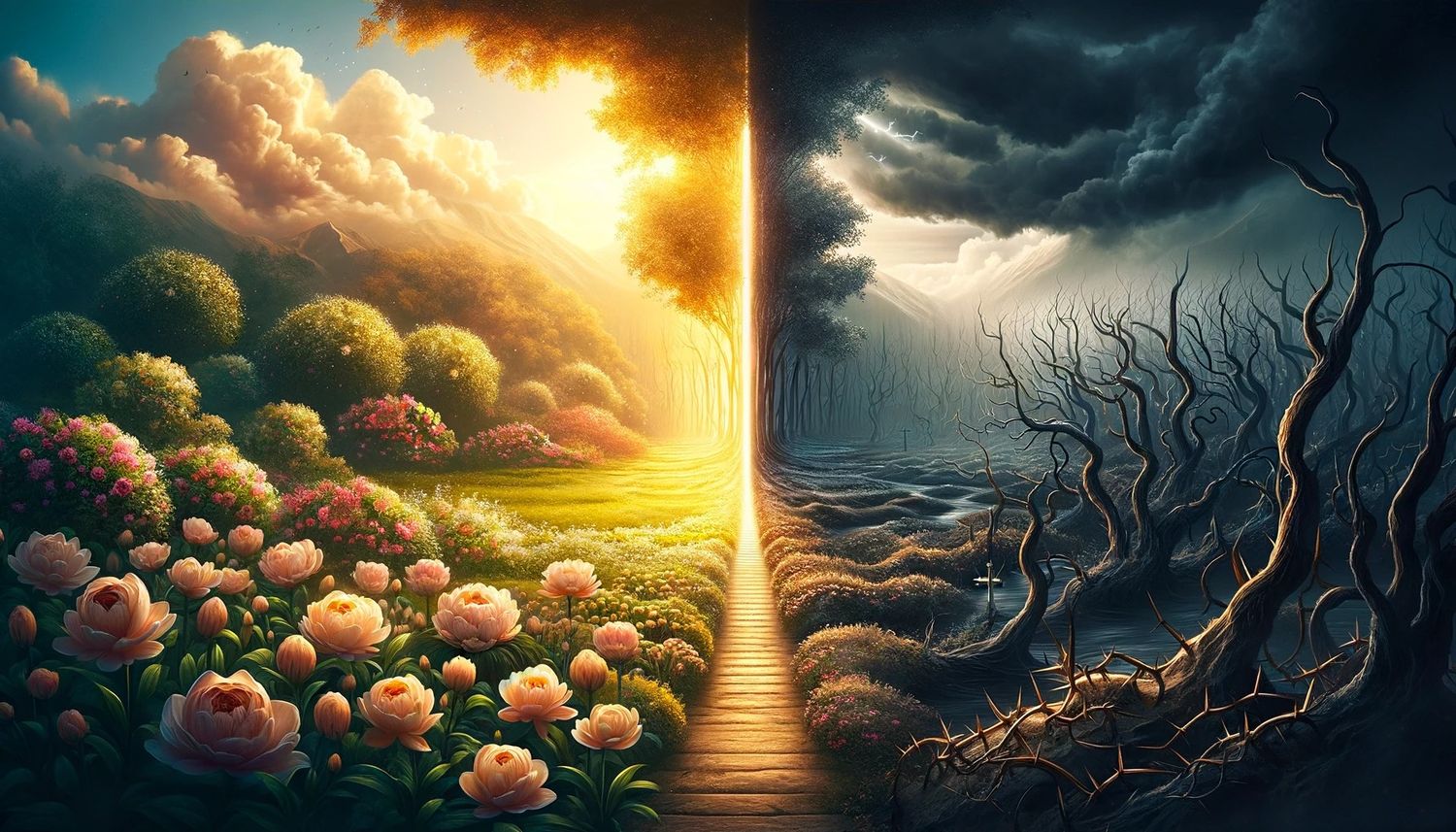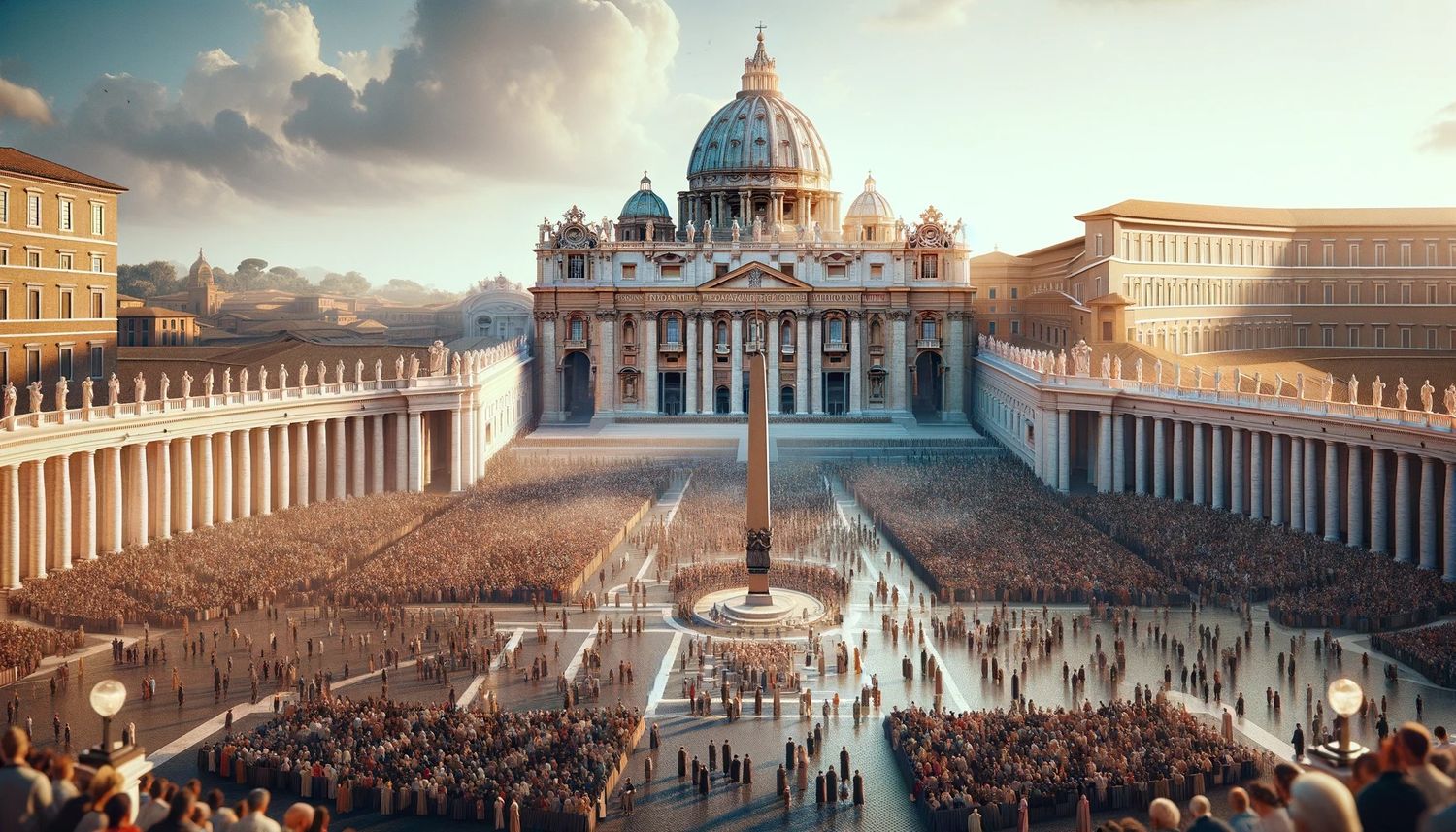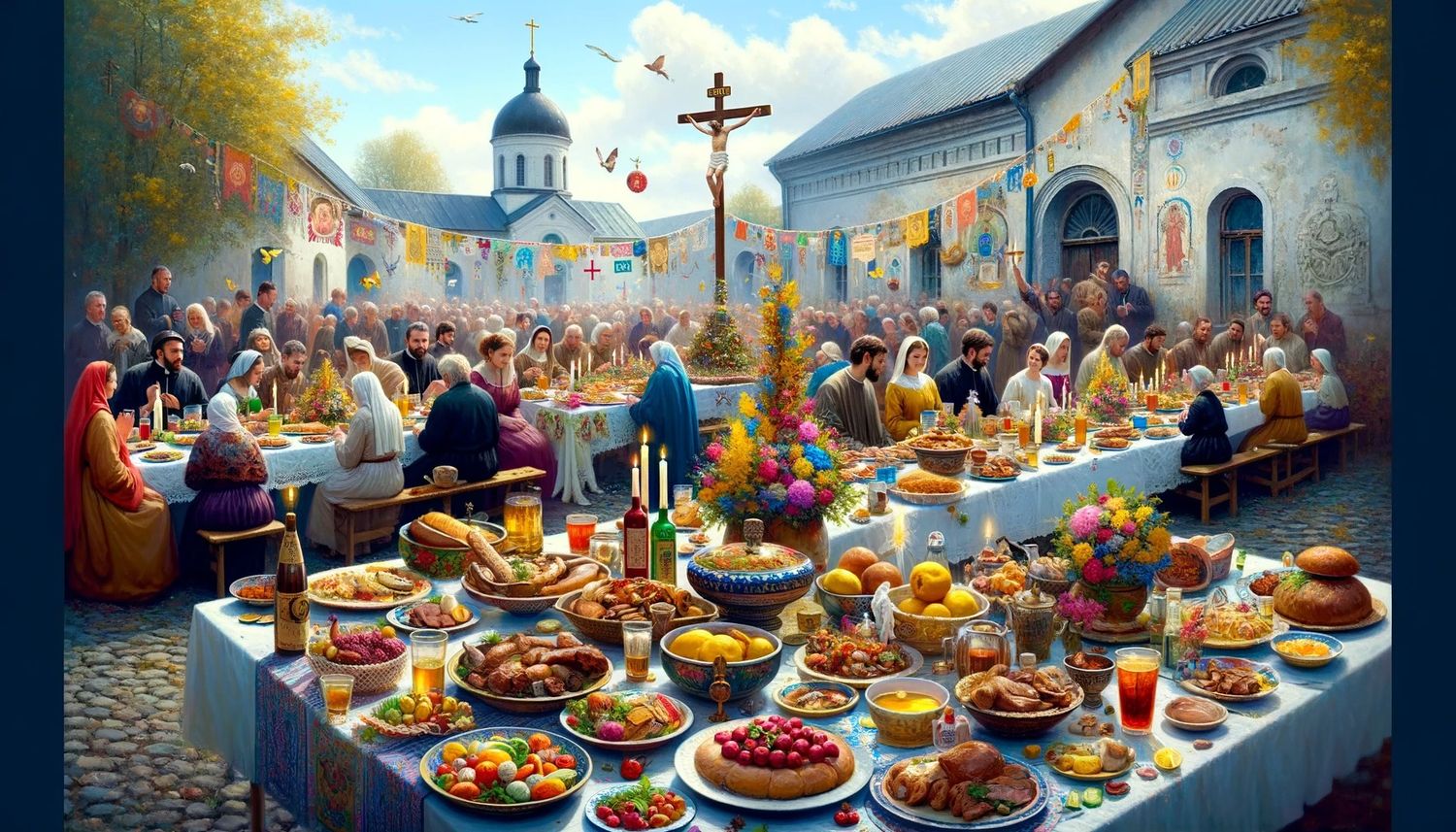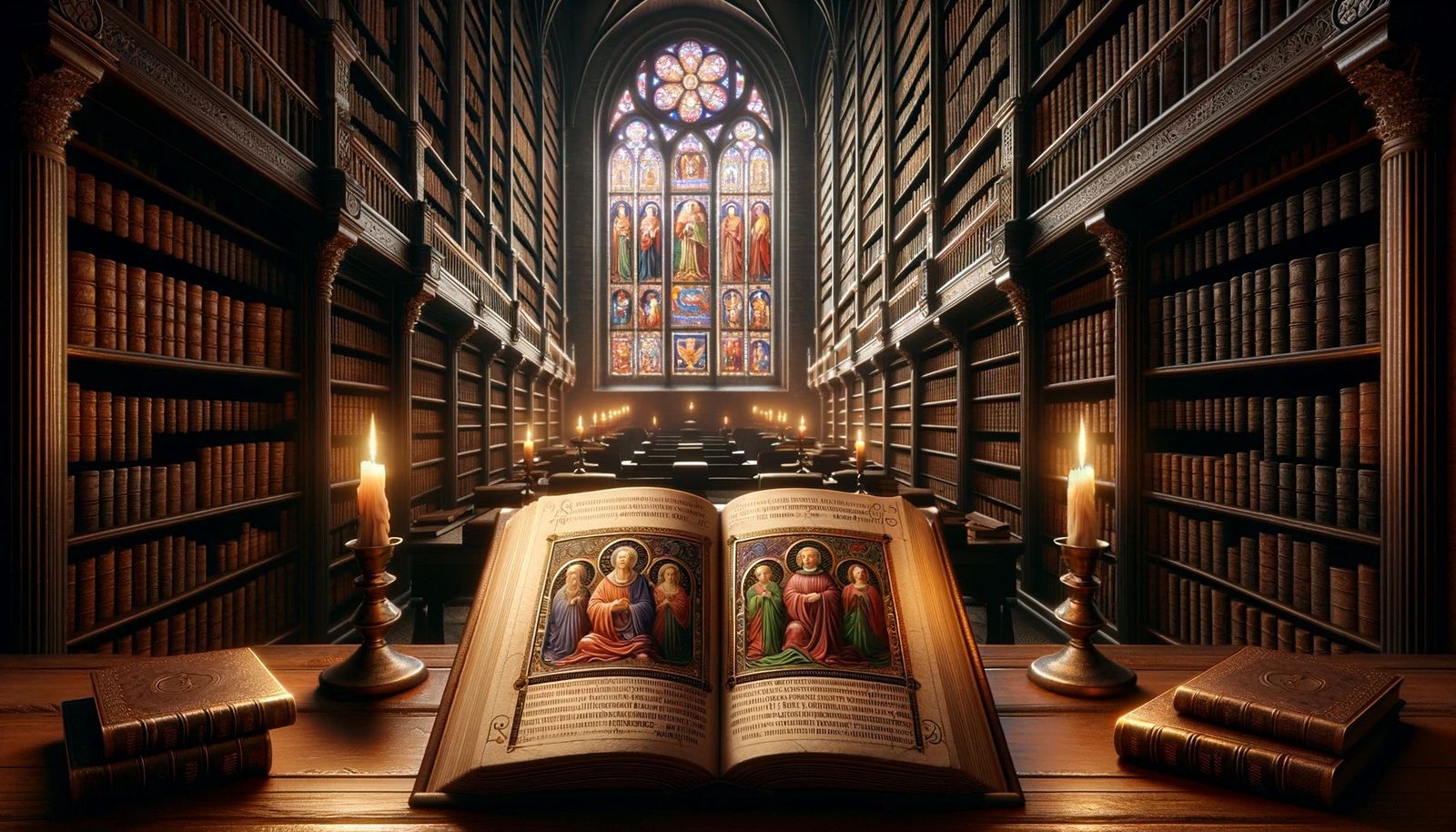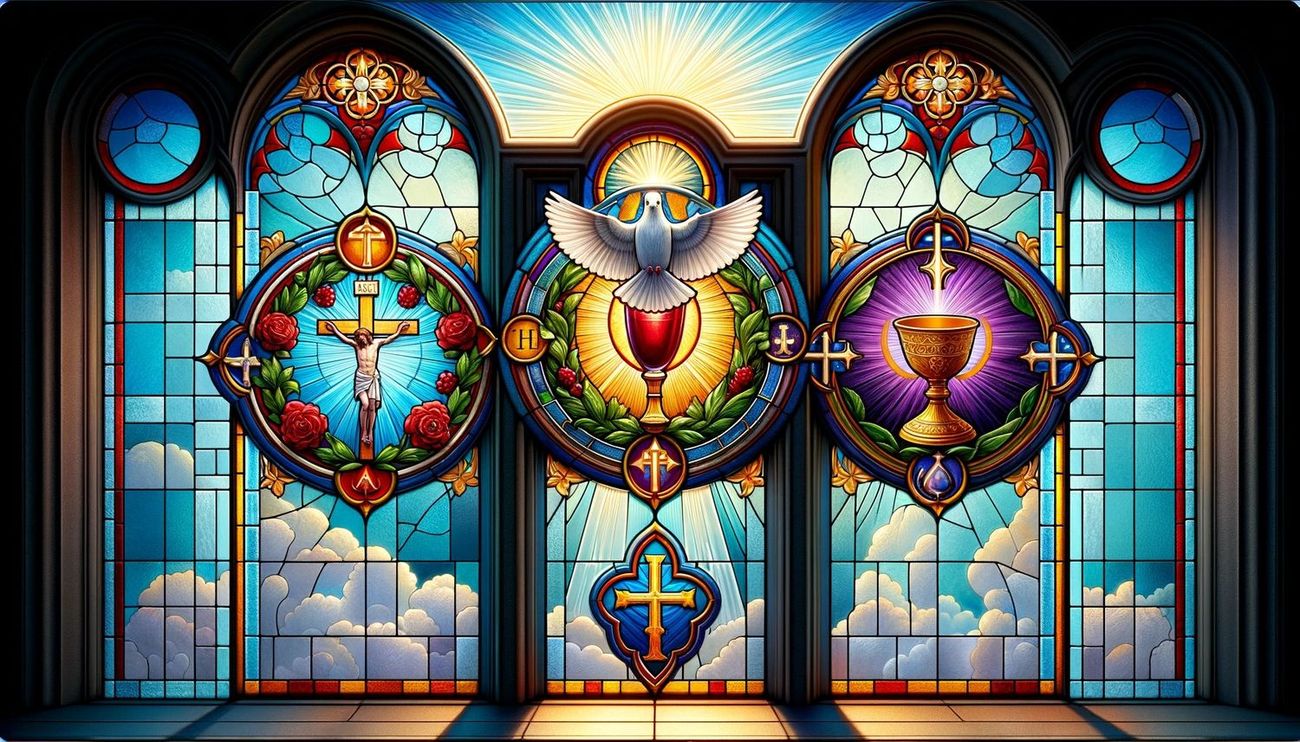Home>Theology and Spirituality>What Is Catholicism All About
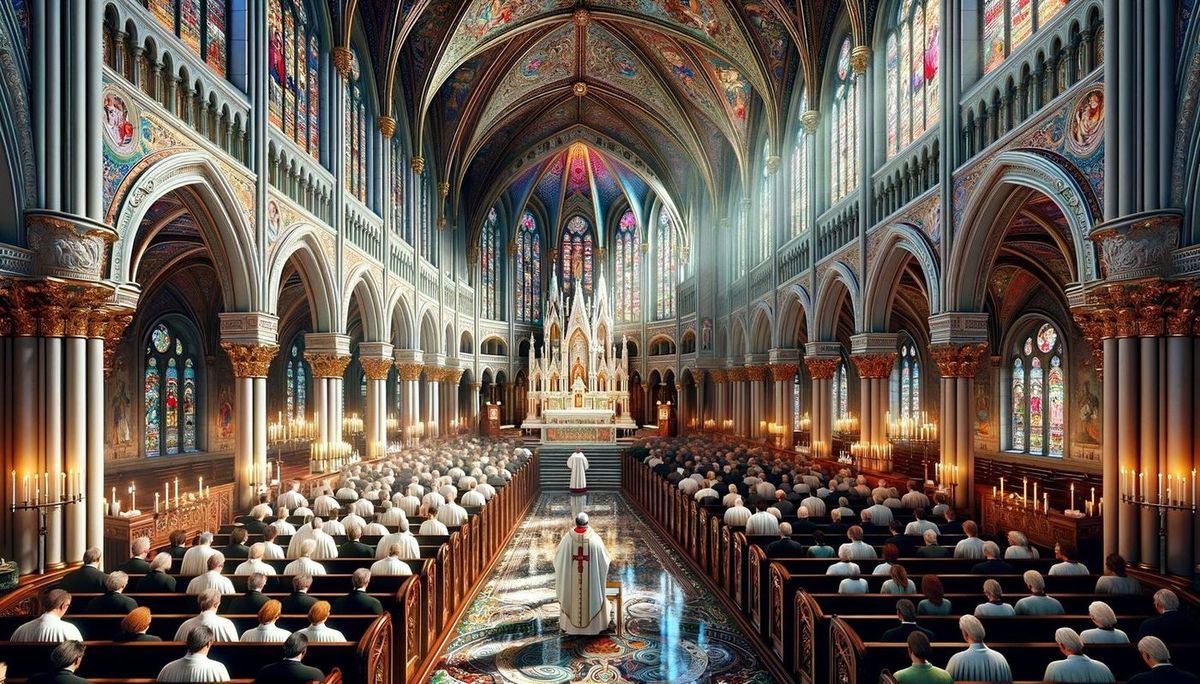

Theology and Spirituality
What Is Catholicism All About
Published: February 18, 2024
Ericka Andersen, an editor at Christian.net, expertly merges digital strategy with content creation, focusing on faith and societal issues. Her communication skills enhance the platform's engaging narratives, fostering meaningful dialogue on belief's impact on society.
Discover the essence of Catholicism, its theology, and spirituality. Explore the beliefs and practices that define this rich and diverse faith tradition.
(Many of the links in this article redirect to a specific reviewed product. Your purchase of these products through affiliate links helps to generate commission for Christian.net, at no extra cost. Learn more)
Table of Contents
Introduction
Catholicism, one of the oldest and most widespread Christian traditions, has a rich history and a profound influence on the world. With over a billion followers globally, it is a cornerstone of religious and cultural identity for many. The essence of Catholicism lies in its deep-rooted traditions, profound spiritual practices, and a strong sense of community.
The Catholic Church traces its origins back to the teachings of Jesus Christ and the apostles, making it an integral part of the Christian faith. Its teachings and rituals have evolved over two millennia, shaping the beliefs and practices of countless individuals and communities. Catholicism is not merely a religion; it is a way of life, encompassing spiritual, moral, and ethical dimensions that guide the lives of its adherents.
At the heart of Catholicism is the belief in the Holy Trinity – the Father, the Son, and the Holy Spirit – as well as the significance of the life, death, and resurrection of Jesus Christ. These foundational beliefs form the basis of Catholic theology and are central to the faith of its followers. The Catholic Church also upholds the authority of the Bible, along with sacred tradition, as sources of divine revelation and guidance.
Catholicism is characterized by its sacramental nature, with rituals and ceremonies playing a vital role in the religious experience of its adherents. The seven sacraments, including baptism, confirmation, and the Eucharist, serve as pivotal moments in the lives of Catholics, marking significant milestones in their spiritual journey.
The Catholic Church's hierarchical structure, with the Pope as its spiritual leader, provides a unifying force for Catholics worldwide. The Pope, considered the successor of Saint Peter, holds a position of authority and guidance, shaping the direction of the Church and offering spiritual leadership to its members.
In the following sections, we will delve deeper into the history, beliefs, practices, and traditions of Catholicism, exploring its enduring impact on individuals and societies across the globe. Through this exploration, we aim to gain a comprehensive understanding of what Catholicism is all about and its significance in the modern world.
Read more: What Is Roman Catholicism About
History of Catholicism
The history of Catholicism is a tapestry woven with the threads of ancient traditions, theological developments, and pivotal historical events. Its roots can be traced back to the time of Jesus Christ and the early Christian communities. Following the crucifixion and resurrection of Jesus, the apostles spread his teachings, laying the foundation for what would later become the Catholic Church.
The term "Catholic" itself stems from the Greek word "katholikos," meaning "universal," reflecting the Church's mission to embrace all people and spread the message of Christ across the world. In the early centuries, the Christian community faced persecution, yet it continued to grow and evolve, eventually gaining recognition and influence within the Roman Empire.
One of the defining moments in the history of Catholicism was the Council of Nicaea in 325 AD, where key theological doctrines, including the divinity of Christ, were affirmed. This council played a crucial role in shaping the beliefs and identity of the early Christian Church, laying the groundwork for what would later be recognized as Catholic doctrine.
As the Roman Empire declined, the Church emerged as a unifying force, preserving knowledge, morality, and spirituality during a tumultuous era. The authority of the Bishop of Rome, known as the Pope, gradually expanded, solidifying the Church's hierarchical structure and its role in guiding the faithful.
The Great Schism of 1054 marked a significant divide between the Western (Catholic) and Eastern (Orthodox) branches of Christianity, leading to distinct theological and cultural developments. The subsequent centuries witnessed the rise of the Papal States, the influence of monastic orders, and the flourishing of medieval scholasticism, with figures like Thomas Aquinas shaping Catholic theology and philosophy.
The Renaissance and the Age of Exploration brought both challenges and opportunities for Catholicism, as the Church navigated political intrigues, theological debates, and encounters with diverse cultures. The Protestant Reformation in the 16th century sparked a profound schism within Western Christianity, leading to the emergence of Protestant denominations and triggering a period of religious upheaval and reform within the Catholic Church.
The modern era has seen Catholicism adapt to the complexities of a rapidly changing world, engaging with social issues, scientific advancements, and interfaith dialogue. The Second Vatican Council in the 1960s brought sweeping reforms, renewing the Church's engagement with contemporary issues and emphasizing the universal call to holiness and the Church's mission in the modern world.
Today, Catholicism continues to evolve and thrive, carrying forward its rich heritage while engaging with the challenges and opportunities of the 21st century. Its history reflects a journey of faith, resilience, and transformation, shaping the lives of billions and leaving an indelible mark on human history.
Beliefs and Practices
At the core of Catholicism are a set of fundamental beliefs and practices that guide the spiritual lives of its adherents. These beliefs are deeply rooted in the teachings of Jesus Christ, the traditions of the early Christian Church, and the theological developments that have shaped Catholic doctrine over the centuries.
The Creed and Core Beliefs
Central to Catholic belief is the Nicene Creed, a statement of faith that articulates the core tenets of the Christian faith. It affirms the belief in the Holy Trinity – the Father, the Son, and the Holy Spirit – as well as the divinity of Jesus Christ, his crucifixion, resurrection, and ascension. The Creed serves as a unifying confession of faith for Catholics worldwide, encapsulating the foundational beliefs that define their religious identity.
The Authority of the Church
Catholics recognize the authority of the Church, viewing it as the custodian of divine revelation and the arbiter of theological truth. The Magisterium, comprising the Pope and the bishops, is entrusted with the task of interpreting and safeguarding the teachings of the Church, ensuring doctrinal unity and fidelity to the sacred deposit of faith.
Read more: What Is Lent About In Catholicism?
Sacraments and Spiritual Practices
The sacramental life is integral to Catholic spirituality, with the seven sacraments – baptism, confirmation, Eucharist, reconciliation, anointing of the sick, holy orders, and matrimony – serving as visible signs of God's grace. These sacraments mark significant moments in the lives of Catholics, fostering spiritual growth, communal worship, and the sanctification of daily life.
Prayer and Devotion
Prayer holds a central place in Catholic devotion, encompassing a rich tapestry of traditional prayers, devotional practices, and contemplative traditions. The Rosary, a meditative prayer centered on the life of Christ and the Virgin Mary, stands as a beloved expression of Catholic piety, fostering a deep connection to the mysteries of the faith.
Moral and Social Teachings
Catholicism emphasizes moral and social teachings rooted in the dignity of the human person, the pursuit of justice and peace, and the call to care for the marginalized and vulnerable. The Church's social doctrine addresses issues such as poverty, human rights, and the common good, reflecting a commitment to building a more just and compassionate society.
Liturgical Celebrations
The liturgical calendar of the Catholic Church is replete with feasts, solemnities, and seasons that mark the rhythm of the Christian life. From the joyous celebrations of Christmas and Easter to the reflective seasons of Lent and Advent, these liturgical observances provide a framework for communal worship, spiritual reflection, and the commemoration of key events in salvation history.
Pilgrimage and Sacred Spaces
Pilgrimage holds a special place in Catholic spirituality, with pilgrims journeying to sacred sites and shrines imbued with spiritual significance. Whether visiting the Vatican, Lourdes, or the Holy Land, pilgrims seek spiritual renewal, healing, and a deeper connection to the faith through their encounters with these hallowed spaces.
In essence, the beliefs and practices of Catholicism form a tapestry of faith, spirituality, and communal worship, shaping the lives of believers and fostering a deep sense of connection to God and the Church. These foundational elements serve as pillars of strength, guiding Catholics on their spiritual journey and nurturing a vibrant and enduring religious tradition.
The Role of the Pope
The Pope, as the Bishop of Rome and the spiritual leader of the Catholic Church, holds a position of immense significance within the Church's hierarchical structure. Central to Catholicism is the belief in the Pope's role as the successor of Saint Peter, to whom Jesus entrusted the keys of the kingdom of heaven. This symbolic passing of authority from Christ to Peter and his successors underscores the Pope's role as the Vicar of Christ on earth, representing the presence of Jesus' leadership within the Church.
The Pope serves as the supreme pontiff, wielding authority over the Church's doctrine, governance, and spiritual guidance. His primary responsibility lies in preserving and interpreting the teachings of the Church, ensuring doctrinal unity, and safeguarding the deposit of faith. Through papal encyclicals, apostolic exhortations, and official pronouncements, the Pope articulates the Church's stance on theological, moral, and social issues, offering spiritual direction to Catholics worldwide.
In addition to his doctrinal authority, the Pope plays a pivotal role in fostering unity and communion within the global Catholic community. His pastoral visits, addresses, and interactions with the faithful serve to strengthen the bonds of faith and solidarity, transcending geographical and cultural boundaries. The Pope's presence as a unifying figure embodies the Church's universality, reflecting its mission to embrace all peoples and nations.
Furthermore, the Pope exercises a diplomatic and advocacy role on the world stage, engaging with global leaders, promoting peace and justice, and advocating for the rights of the marginalized and oppressed. His moral authority and influence extend beyond the boundaries of the Church, shaping conversations on issues such as human rights, environmental stewardship, and interfaith dialogue.
The election of a new Pope, known as a conclave, is a solemn and prayerful process, reflecting the sacred responsibility entrusted to the chosen pontiff. The continuity of papal succession, dating back to the earliest days of the Church, underscores the enduring significance of the Pope's role as the visible head of the Catholic Church.
In essence, the Pope's role encompasses spiritual leadership, doctrinal authority, pastoral care, and global advocacy, embodying the enduring presence of Christ within the Church and offering guidance to Catholics as they navigate the complexities of the modern world. His influence transcends time and place, shaping the collective identity and mission of the Catholic Church, and serving as a beacon of faith and hope for millions around the globe.
The Sacraments
The sacraments form the spiritual backbone of Catholicism, serving as visible signs of God's grace and presence in the lives of believers. Rooted in the teachings of Jesus Christ and the traditions of the early Church, the sacraments mark pivotal moments in the spiritual journey of Catholics, fostering a deep connection to the divine and the community of faith.
Baptism
Baptism, the gateway to the sacramental life, initiates individuals into the Christian faith and the community of believers. Through the pouring of water and the invocation of the Holy Trinity, baptism cleanses the soul from original sin and bestows the gift of divine life, marking the beginning of a lifelong journey of faith.
Read more: What Does The Bible Say About Catholicism
Confirmation
Confirmation, often referred to as the sacrament of the Holy Spirit, strengthens the baptized and equips them with the gifts of the Spirit to boldly witness to their faith. Through the anointing with chrism oil and the laying on of hands, confirmation seals the individual with the Holy Spirit, empowering them to embrace their role as active participants in the life of the Church.
Eucharist
The Eucharist, also known as the Holy Communion, stands as the central sacrament of the Catholic faith, wherein the faithful partake of the body and blood of Christ. Through the consecration of bread and wine, the Eucharist nourishes the soul, unites believers with Christ and one another, and serves as a profound expression of thanksgiving and remembrance.
Reconciliation
The sacrament of reconciliation, or penance, offers the gift of God's forgiveness and reconciliation to those who have strayed from the path of righteousness. Through the confession of sins and the absolution granted by a priest, reconciliation restores the individual to a state of grace, fostering spiritual healing and renewal.
Anointing of the Sick
Anointing of the sick, often administered to the gravely ill or those facing significant health challenges, brings the comfort and healing presence of Christ to the afflicted. Through the anointing with oil and the prayers of the faith community, this sacrament offers strength, courage, and the assurance of God's compassionate care.
Read more: What Does Catholicism Say About Dinosaurs
Holy Orders
The sacrament of holy orders confers the grace and responsibility of pastoral ministry and leadership within the Church. Through ordination as deacons, priests, or bishops, individuals are called to serve the faithful, proclaim the Word of God, and celebrate the sacraments, embodying Christ's presence in the life of the Church.
Matrimony
Matrimony, the sacrament of marriage, unites a man and a woman in a lifelong covenant of love and fidelity. Through their vows and the blessing of the Church, the couple becomes a living sign of Christ's love for the Church, called to nurture and support one another in their journey of faith and mutual sanctification.
In essence, the sacraments stand as sacred encounters with the divine, shaping the spiritual landscape of Catholicism and nurturing the faith of believers through the tangible and transformative presence of God's grace. These sacramental moments serve as pillars of strength, guiding Catholics on their journey of faith and fostering a deep sense of communion with God and the Church.
Catholic Holidays and Traditions
Catholicism is rich in a tapestry of holidays and traditions that punctuate the liturgical year, marking key moments in the life of Christ and the journey of faith for believers. These celebrations and customs serve as vibrant expressions of the Church's spiritual heritage, fostering a deep sense of communal worship, reflection, and joyous festivity.
Liturgical Calendar
The liturgical calendar of the Catholic Church is replete with a diverse array of feasts, solemnities, and seasons that guide the rhythm of the Christian life. From the anticipation of Advent to the jubilation of Easter, each liturgical season carries its own unique significance, inviting believers to immerse themselves in the mysteries of salvation history and the life of Christ.
Read more: What Is Confirmation In Catholicism
Christmas
Christmas, the celebration of the birth of Jesus Christ, stands as a cornerstone of the Catholic liturgical year. With traditions ranging from the lighting of Advent candles to the joyful midnight Mass, Christmas embodies the spirit of hope, love, and the incarnation of God's presence among humanity.
Lent and Easter
The solemn season of Lent, characterized by prayer, fasting, and almsgiving, prepares the faithful for the transformative experience of Easter. The Triduum, encompassing Holy Thursday, Good Friday, and Easter Vigil, marks the pinnacle of the liturgical year, culminating in the resurrection of Christ and the triumph of life over death.
Feast Days of Saints
The feast days of saints hold a special place in Catholic tradition, honoring the lives and legacies of exemplary men and women who have embodied the virtues of faith, courage, and compassion. These celebrations serve as occasions for reflection, intercession, and inspiration, drawing believers closer to the communion of saints and the enduring witness of holy lives.
Marian Devotions
Marian devotions, centered on the veneration of the Blessed Virgin Mary, encompass a rich tapestry of traditions, including processions, rosary recitations, and the celebration of Marian feast days. These devotions reflect the deep affection and reverence that Catholics hold for Mary, acknowledging her pivotal role in salvation history and her maternal intercession for the faithful.
Read more: What Is The Symbol Of Catholicism
Cultural Traditions
Catholicism embraces a diverse array of cultural traditions and customs, reflecting the global reach of the Church and the rich tapestry of local customs and expressions of faith. Whether it's the vibrant festivities of Mardi Gras, the solemn processions of Holy Week, or the colorful observances of patronal feasts, these cultural traditions enrich the fabric of Catholic identity and foster a sense of unity amidst diversity.
In essence, Catholic holidays and traditions form a vibrant mosaic of faith, spirituality, and cultural expression, uniting believers across time and place in a shared journey of devotion and celebration. These sacred observances and customs serve as pillars of continuity, enriching the spiritual landscape of Catholicism and nurturing a deep sense of communal identity and belonging.
Catholicism in the Modern World
Catholicism, with its rich heritage and enduring traditions, continues to navigate the complexities of the modern world, engaging with diverse social, cultural, and ethical challenges while upholding its timeless spiritual principles. In an era marked by rapid globalization, technological advancements, and evolving societal norms, the Catholic Church remains a steadfast presence, offering guidance, compassion, and a prophetic voice on issues of global significance.
The Church's engagement with social justice and human rights issues reflects its commitment to addressing the pressing concerns of the modern world. From advocating for the rights of migrants and refugees to championing environmental stewardship and sustainable development, Catholicism stands at the forefront of efforts to promote dignity, equality, and solidarity across diverse communities and nations. The Church's social teachings, encapsulated in documents such as "Laudato Si'" and "Pacem in Terris," resonate with contemporary challenges, offering a moral compass for navigating complex ethical dilemmas and fostering a culture of respect for human life and dignity.
Moreover, Catholicism's role in interfaith dialogue and ecumenical cooperation underscores its commitment to fostering understanding, reconciliation, and cooperation among diverse religious traditions. Through initiatives such as the World Day of Peace and interreligious gatherings, the Church seeks to build bridges of dialogue and mutual respect, promoting a vision of peace and harmony in a world marked by religious diversity and pluralism.
In the realm of education and healthcare, Catholic institutions continue to play a vital role in serving communities and addressing societal needs. From schools and universities that promote holistic education to hospitals and charitable organizations that provide compassionate care to the sick and marginalized, Catholicism's contributions to the welfare of society are deeply intertwined with its mission of service and solidarity.
The Church's engagement with contemporary ethical issues, including bioethics, technological advancements, and the sanctity of human life, reflects its commitment to upholding moral values in a rapidly changing world. Through ethical guidelines and pastoral outreach, Catholicism offers a compassionate and reasoned approach to navigating the ethical complexities of modern medical and technological advancements, emphasizing the dignity and worth of every human person.
In essence, Catholicism's presence in the modern world is characterized by a dynamic engagement with the pressing issues of our time, rooted in a timeless commitment to justice, compassion, and the sanctity of human life. As the Church continues to adapt to the evolving landscape of the 21st century, its enduring mission of faith, service, and social responsibility remains a beacon of hope and inspiration for individuals and communities around the globe.
Conclusion
In conclusion, Catholicism stands as a profound and enduring spiritual tradition, encompassing a rich tapestry of history, beliefs, practices, and cultural expressions. From its early roots in the teachings of Jesus Christ and the apostolic era to its global presence in the modern world, Catholicism has left an indelible mark on human history and continues to shape the lives of billions of individuals worldwide.
The history of Catholicism reflects a journey of faith, resilience, and transformation, marked by pivotal events, theological developments, and the enduring witness of saints and scholars. Its evolution from the early Christian communities to a global religious institution underscores the enduring relevance and adaptability of its teachings and traditions.
At the heart of Catholicism are a set of fundamental beliefs and practices that guide the spiritual lives of its adherents. The Creed, sacraments, prayer, moral teachings, and liturgical celebrations form the spiritual landscape of Catholic identity, fostering a deep sense of connection to God and the community of faith.
The role of the Pope as the spiritual leader of the Catholic Church embodies the continuity of papal succession and the unifying presence of Christ within the Church. His authority, pastoral care, and global advocacy reflect the enduring mission of the Church to offer guidance, compassion, and prophetic witness in a rapidly changing world.
The sacraments, holidays, and traditions of Catholicism serve as vibrant expressions of faith, fostering communal worship, reflection, and joyous celebration. These sacred observances and customs enrich the spiritual landscape of Catholicism, nurturing a deep sense of communal identity and belonging.
In the modern world, Catholicism continues to engage with diverse social, cultural, and ethical challenges, upholding its timeless spiritual principles while addressing contemporary issues with compassion, wisdom, and prophetic vision. Its commitment to social justice, interfaith dialogue, education, healthcare, and ethical stewardship reflects a dynamic engagement with the pressing concerns of our time.
In essence, Catholicism remains a beacon of faith, service, and social responsibility, offering a vision of hope, compassion, and solidarity to individuals and communities across the globe. Its enduring legacy and ongoing mission underscore the profound significance of what Catholicism is all about in the modern world.
